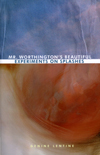Mr. Worthington’s Beautiful Experiments of Splashes
Reading Genine Lentine’s collection is like drinking deeply after a hike through the desert: refreshing and shocking in the way you didn’t realize how much you needed it until you had it. From concrete poetry to lines shaped likes the ripples of swords cutting through the air, Lentine manages to create an immediate and personal world within the pages.
Reading Genine Lentine’s collection is like drinking deeply after a hike through the desert: refreshing and shocking in the way you didn’t realize how much you needed it until you had it. From concrete poetry to lines shaped likes the ripples of swords cutting through the air, Lentine manages to create an immediate and personal world within the pages.
Lentine starts off with the devastating “Looted” and its closing lines, documenting the contents of “the sixth floor supply cabinet” in the oncology ward of Bethesda Naval Hospital:
What are these cool white
waffle weave cloths , each folded
into its own cello phane bag?
(good for drawing? ) But wait,
why is this one closed at both ends?
Why this long zipper?
Why this zipper the length
of y our mother’s body?
The break runs through the poem like that zipper, or worse, like that familiar white scar running along the body in that horrible ward. It takes courage to begin a collection with a poem that will no doubt hit many readers hard, but if you have trouble with death, you will have trouble with life, which is found in equal abundance in other parts of the book.
Humor also plays a role in poems such as “Molt,” “Depends,” (yes, it’s about urinating while wearing the adult diaper) and “Softsoap,” where Lentine ponders the metaphysics of the product of the same name and tries, quite successfully, “to be spared / from the jaws of death / (…) by a liquid soap.”
Equal parts experimental (“Interview with the Pear Tree”) and provocative (“you mark my page, / you urge my legs / open”), it is all approachable and enjoyable without being the dreaded “E” word: easy. Even the straight-ahead “Unbreakable” and its image of a small girl trying to “bend the un- / relenting spine” of those familiar black combs reaches a satisfying conclusion when “the atom / of its lie split”.
In “Upon Your ‘[Un]consolable Sadness,’” Lentine asks, “it’s not so bad is it? Being alive?” No, not when there’s poetry of this quality being written.





